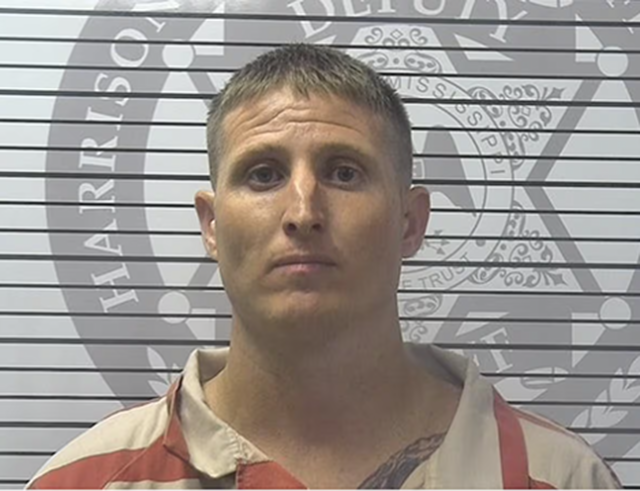How Mississippi’s oldest gay bar survived the COVID pandemic
Published 6:54 am Saturday, July 10, 2021
Last March, after Lynn Koval watched COVID-19 cases spread across the United States, she bought several thousand dollars worth of beer and liquor before closing the doors at Just Us Lounge, the oldest gay bar still operating in Mississippi.
The little storefront on Division Street survived Hurricane Katrina. It weathered the BP oil spill. It hosted fundraisers for countless community members in need. And it’s been a place to find community and refuge in a conservative state.
Koval knew her bar would survive the pandemic, because she knew she couldn’t let it die. And so, as a veteran of South Mississippi nightlife, she thought practically and stocked up on supplies.
Trending
“I didn’t know what it was going to be like on the other side,” she said of those days last spring, when no one knew just how the pandemic would transform our lives, and for how long.
Koval closed Just Us on March 20, well before Gov. Tate Reeves issued a shelter in place order on April 1, 2020, that required bars and restaurants to stop serving.
“It’s never a hard decision when it’s for the betterment of this community,” Koval said.
Throughout the pandemic, Koval’s decisions were driven by that philosophy: That her objective as the owner of a gay bar is not profit, but service.
When you open a gay bar, she said, ‘You’re taking on a movement, a community — all of its needs, everything.”
She reopened in late July 2020 because if she hadn’t, she might have lost the business. And that would have meant much more than the closing of a bar.
Trending
‘BUT I’M GAY’
Koval started bartending to pay her way through college, always working at 24-hour joints. They weren’t gay bars, so whenever her straight clients made a derisive comment about gay people, she saw an opportunity. “But I’m gay,” she’d say.
“No, you’re Lynn,” they’d respond.
It doesn’t work that way, she’d explain, and at the end of the night one more person would head home knowing that someone in their life, someone they liked and respected, was gay. (Surveys have found that the sharp increase in support for gay marriage coincided with a dramatic rise since the 1990s in the number of Americans who report personally knowing someone who is gay.)
When she opened her bar the Sanctuary on Veterans Avenue in 1996, the Coast could be a violent place to be openly queer.
“We were getting our asses whupped,” she said.
Alcohol was what Koval knew, so a bar was what she opened to serve her community. If she’d had experience with donuts, she jokes, she’d now own the longest-running gay doughnut shop in Mississippi.
A few years later, Koval moved her bar to Division Street, and it became Just Us.
THE MEANING OF A GAY BAR
The first Pride march and celebration in 1970 commemorated the police raid of a New York City gay bar called the Stonewall Inn the year prior and the LGBTQ community’s protests; that raid and the riots also accelerated the American movement for gay rights.
In many communities around the country, the local gay bar is the only space clearly dedicated to the LGBTQ community. Unlike bigger cities, the Coast has no LGBTQ community center, though one is in the works. Rob Hill, the Jackson-based state director for the Human Rights Campaign in Mississippi, has held community meetings at Sipps, a gay bar in Gulfport, when he comes to the Coast.
Christopher Davidson, who has tended bar at Just Us off and on for 19 years, is retired from Lockheed Martin. Decades ago, before he was out, he visited Dallas and was stunned to encounter LGBTQ men and women having drinks after work, wearing well-tailored suits that he still vividly remembers. Growing up in the Deep South, he hadn’t known there were openly gay business people, and that he could be one, too.
He believes Just Us provides the same kind of opportunity for young queer people who have no LGBTQ people in their lives.
“You need role models,” said Davidson, who is 59. “They can come in the bar and see us older people and realize, regardless of what we’ve been through, we’re still here.”
Before the pandemic, Koval had closed her 24/7 bar just once, when it was “70% gone” after Hurricane Katrina.
Katrina and the COVID-19 pandemic stand out as two of the most devastating events in the history of Just Us.
“They’re both heartbreaking, because both situations involved having choices,” she said. “It’s very hard to sit back and watch a community make poor choices.”
PANDEMIC PRECAUTIONS
When Koval closed Just Us, she and her employees kept in touch daily in a Facebook Messenger group.
The bar got a $15,000 loan through the Paycheck Protection Program, and employees drew expanded unemployment benefits.
They used the time to renovate the bar, coming in one or two at a time to work. They put in new floors and remodeled the bathrooms. They extended the bar to give people more space to spread out. And they filled a patio space with picnic tables to allow for outdoor socializing.
By July 2020, Koval couldn’t afford to stay closed for much longer. On July 30, her wife Tamara’s birthday, they reopened.
“No matter how crazy it may get while we work out our kinks, we are home,” the bar’s Facebook post that day said. “We are here! We are Just Us!”
The reopened Just Us took precautions that weren’t common at Coast bars and restaurants. There were temperature checks at the door and a temperature log for employees. They hung plexiglass along the bar to protect bartenders. Everyone wore plastic gloves.
Davidson said Koval was adamant about following safety procedures.
“She said, ‘We’ve survived 26 years without putting people at risk. Why start now?'”
Koval spent most of her time at home because of health conditions that would make COVID-19 an almost certain death sentence.
But she stayed closely involved with the business, especially when it came to coronavirus precautions. She could see on the bar’s security camera if an employee’s mask was dangling from an ear, and she would call to ask them to cover their mouth and nose.
As far as Koval knows, no one in her immediate circle got the virus.
A RETURN TO NORMAL
On a recent Tuesday night, Davidson was tending bar inside the cool dark of Just Us. A handful of regulars were watching “Wheel of Fortune” at one end of the bar.
The plexiglass was gone, and no one was wearing a mask. Koval said all of her employees except those with specific medical concerns have been vaccinated.
Davidson checked the beer supply, unsure what remained in stock after a busy Pride weekend. That event had marked something of a return to normal for the bar: since reopening almost a year ago, Just Us had hosted almost no shows or events, because Koval didn’t want to pack the place. The regulars, coming in alone or in small groups, were keeping them afloat anyway.
In big cities like Los Angeles and New York, owners of gay bars worried that the pandemic would force them to close permanently, destroying pieces of queer history and present-day community. In Los Angeles, at least four did close permanently.
On the Coast, thanks in part to Mississippi’s less-stringent restrictions, things looked different.
Jeffrey Mayeux, the owner of Sipps Bar in Gulfport, said his business actually doubled once he reopened during the pandemic. People visited from New Orleans, where bars were less open. And a group of older straight people started coming to Sipps every Tuesday and Friday first because their regular bar was closed, and then because they found they liked Sipps better.
LYNN KOVAL, KING OF PRIDE
On the evening of Saturday, June 26, Koval’s bar was full of people who had come from Biloxi’s Pride celebration. They drank, chatted, and danced to Whitney Houston’s “I Wanna Dance With Somebody.”
Koval was back at Point Cadet, being crowned the Coast’s first “King of Pride” in recognition of her contributions to the Coast’s LGBTQ community. Koval organized the Coast’s first Pride festival in 2017.
Davidson, president of the Gulf Coast Association of Pride, which now organizes the event, said she had been the obvious choice.
Around 6 p.m., Koval walked into Just Us wearing her crown.
Her regulars kept coming up to tell her they love her. And newcomers came over to ask, in the hushed and slightly disbelieving tone of someone encountering royalty (which, after her coronation at Pride, she was), “Are you the owner?”
Koval was devastated by the pandemic’s death toll, by its continuing rise, by the limits of America’s empathy and willingness for collective sacrifice it had revealed.
“What a ball of mixed feelings there — how can you say you love the person next to you when you’re not willing to be inconvenienced?”
But that night, with Pride in full swing and the bar filling up, it looked like Just Us had once again made it to the other side, still standing.






